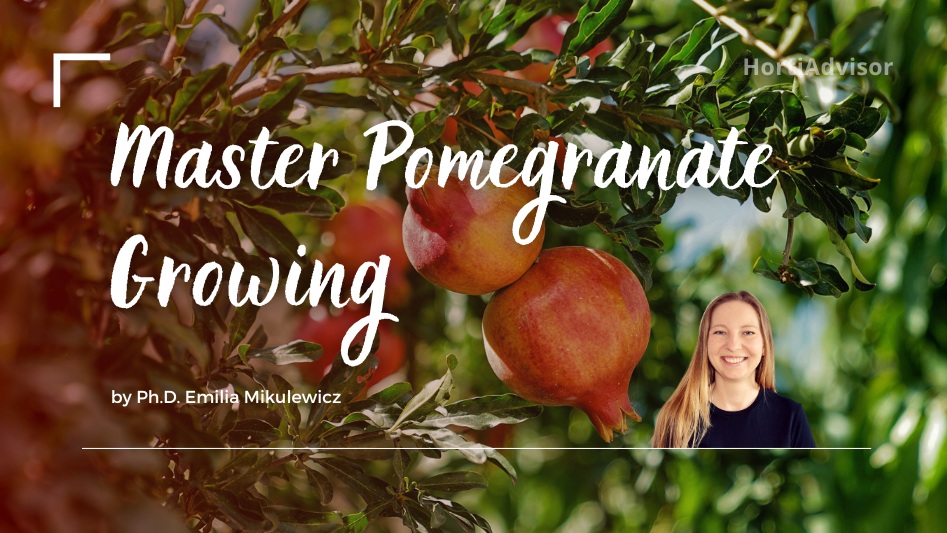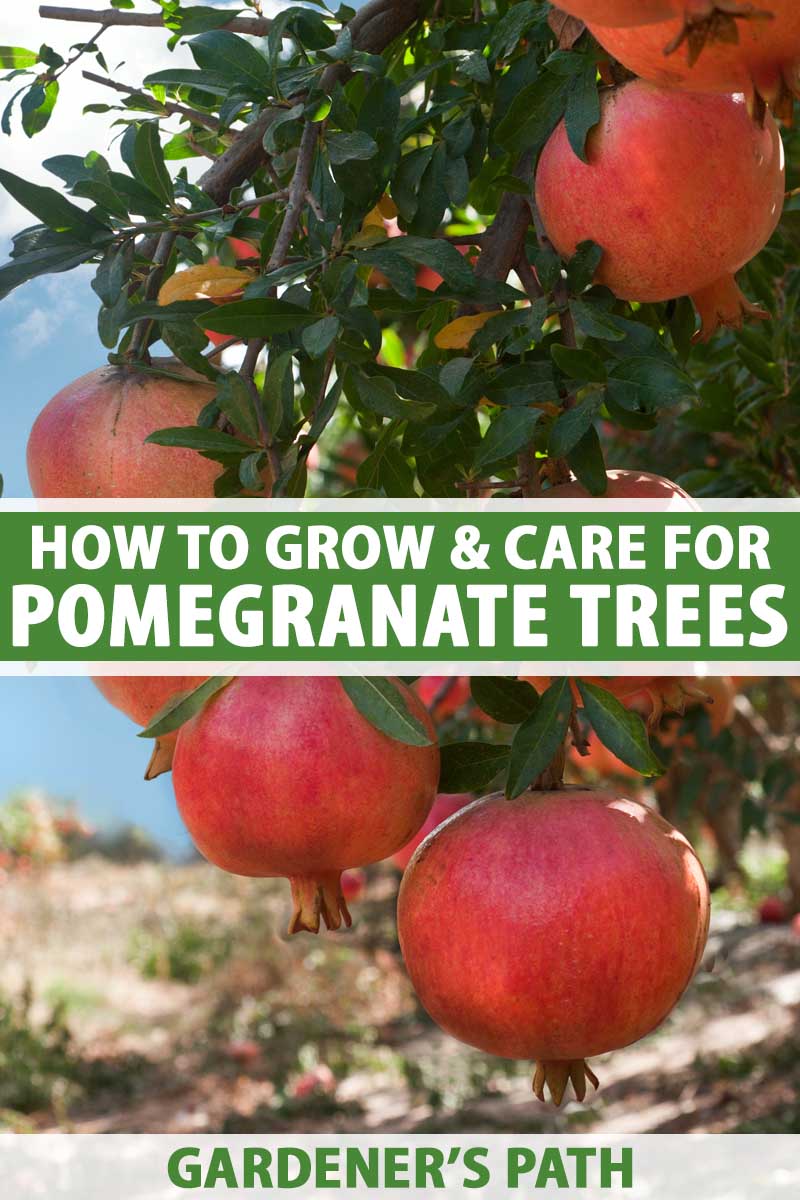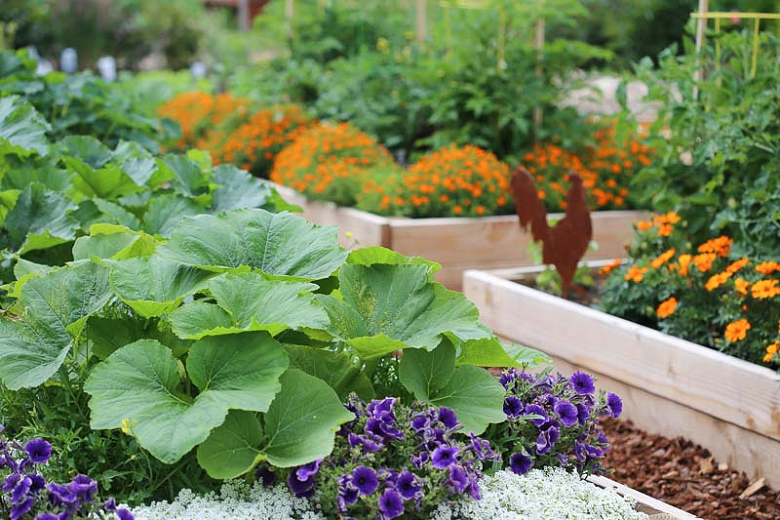The Best Companion Plants For Pomegranates
Title: The Best Companion Plants for Pomegranates
Introduction:
Pomegranates are a delicious and nutritious fruit that can be grown in many different climates. They are also relatively easy to care for, making them a popular choice for home gardeners.
One of the best ways to ensure that your pomegranate tree thrives is to plant it with companion plants. Companion plants are those that benefit each other in some way. They can help to attract pollinators, deter pests, or improve the overall health of the plants.
In this blog post, we will discuss the best companion plants for pomegranates. We will also provide some tips on how to choose and plant companion plants.
Main Content:
There are many different companion plants that can be grown with pomegranates. Some of the most beneficial include:
- Herbs: Herbs such as rosemary, thyme, and oregano can help to deter pests and attract pollinators. They can also be used to flavor pomegranate dishes.
- Flowers: Flowers such as marigolds, nasturtiums, and sunflowers can also help to attract pollinators and deter pests. They can also add beauty and interest to your garden.
- Fruits: Fruits such as melons, berries, and citrus fruits can help to improve the overall health of the pomegranate tree. They can also provide a source of food for pollinators.
- Other vegetables: Other vegetables that can be grown with pomegranates include tomatoes, peppers, and eggplants. These vegetables can help to suppress weeds and improve the soil quality.
When choosing companion plants for pomegranates, it is important to consider the size and growth habit of the plants. For example, you would not want to plant a large tree next to a small pomegranate tree, as the tree would eventually shade out the pomegranate.
It is also important to consider the climate in which you live. Some companion plants are more suited to warm climates, while others are better suited to cool climates.
Tips for Planting Companion Plants:
- When planting companion plants, it is important to space them properly. This will help to prevent competition for water and nutrients.
- It is also important to plant companion plants at the same time of year. This will help to ensure that they establish themselves at the same time.
- Finally, it is important to water and fertilize companion plants regularly. This will help them to thrive and benefit your pomegranate tree.
Conclusion:
By planting companion plants with your pomegranate tree, you can help to ensure that it thrives. Companion plants can attract pollinators, deter pests, and improve the overall health of the tree.
If you are looking for ways to improve the health and productivity of your pomegranate tree, consider planting some companion plants. You will be glad you did!
These plants, known as companion plants, can help to attract pollinators, deter pests, and improve the soil quality around your pomegranate tree. Some of the best companion plants for pomegranates include:
- Nasturtiums: These flowers help to repel aphids, which can be a major pest for pomegranate trees.
- Fennel: This vegetable attracts ladybugs and lacewings, which are beneficial insects that eat aphids.
- Dill: This herb helps to improve the soil quality around your pomegranate tree, making it more fertile and easier for the tree to absorb nutrients.
- Summer savory: This herb also helps to improve the soil quality around your pomegranate tree, and it can also help to deter pests.
For more information about pomegranate companion plants, please visit Home Gardening.
FAQ of pomegranate companion plants
- What are companion plants for pomegranates?
Pomegranates can be successfully companion planted with a variety of other plants, including:
Herbs: Dill, fennel, mint, basil, thyme, and summer savory are all good choices for companion plants for pomegranates. These herbs attract beneficial insects, such as ladybugs and lacewings, which help to control pests. They also help to improve the soil quality around the pomegranate tree.
Flowers: Nasturtiums, marigolds, sunflowers, and cosmos are all good choices for companion plants for pomegranates. These flowers attract pollinators, such as bees and butterflies, which help to pollinate the pomegranate flowers. They also help to deter pests, such as aphids and spider mites.
Vegetables: Melons, cucumbers, and squash are all good choices for companion plants for pomegranates. These vegetables have similar growing requirements as pomegranates, and they can help to suppress weeds.
What are the benefits of companion planting with pomegranates?
There are several benefits to companion planting with pomegranates, including:
Improved pollination: Companion plants that attract pollinators can help to improve the pollination of pomegranate flowers. This can lead to a larger and more bountiful harvest.
Reduced pest pressure: Companion plants that deter pests can help to reduce the amount of pesticides that need to be used on pomegranate trees. This is beneficial for the environment and for human health.
Improved soil quality: Companion plants that improve the soil quality around pomegranate trees can help to make the soil more fertile and well-drained. This can lead to healthier and more productive pomegranate trees.
How far apart should companion plants be planted from pomegranate trees?
The distance between companion plants and pomegranate trees will vary depending on the size of the plants. However, it is generally recommended to plant companion plants at least 3 feet away from pomegranate trees. This will help to prevent the companion plants from competing with the pomegranate trees for water and nutrients.
- What are some common mistakes to avoid when companion planting with pomegranates?
Some common mistakes to avoid when companion planting with pomegranates include:
- Planting incompatible plants together: Some plants are incompatible with pomegranates and should not be planted together. For example, pomegranates should not be planted near walnut trees, as walnut trees can release a chemical that stunts the growth of pomegranates.
- Planting too many companion plants: It is important not to plant too many companion plants around a pomegranate tree. Too many plants can compete with the pomegranate tree for water and nutrients.
- Not watering the companion plants properly: Companion plants need to be watered regularly, just like pomegranate trees. If the companion plants are not watered properly, they will not be able to provide the benefits that they are supposed to.
Image of pomegranate companion plants
- Rosemary: Rosemary is a fragrant herb that can help to deter pests from pomegranate plants.

- Lavender: Lavender is another fragrant herb that can help to deter pests from pomegranate plants.

- Sage: Sage is a herb that can help to improve the flavor of pomegranate fruit.

- Chives: Chives are a herb that can help to repel nematodes, which are pests that can damage pomegranate roots.

- Cilantro: Cilantro is a herb that can help to attract pollinators, which are necessary for pomegranate pollination.

- Onions: Onions are a vegetable that can help to repel aphids, which are pests that can damage pomegranate leaves.

- Garlic: Garlic is a vegetable that can help to repel aphids, as well as other pests such as snails and slugs.

- Marigolds: Marigolds are flowers that can help to deter nematodes and other pests.

- Nasturtiums: Nasturtiums are flowers that can help to attract pollinators, as well as deter pests such as aphids and whiteflies.

Post a Comment for "The Best Companion Plants For Pomegranates"